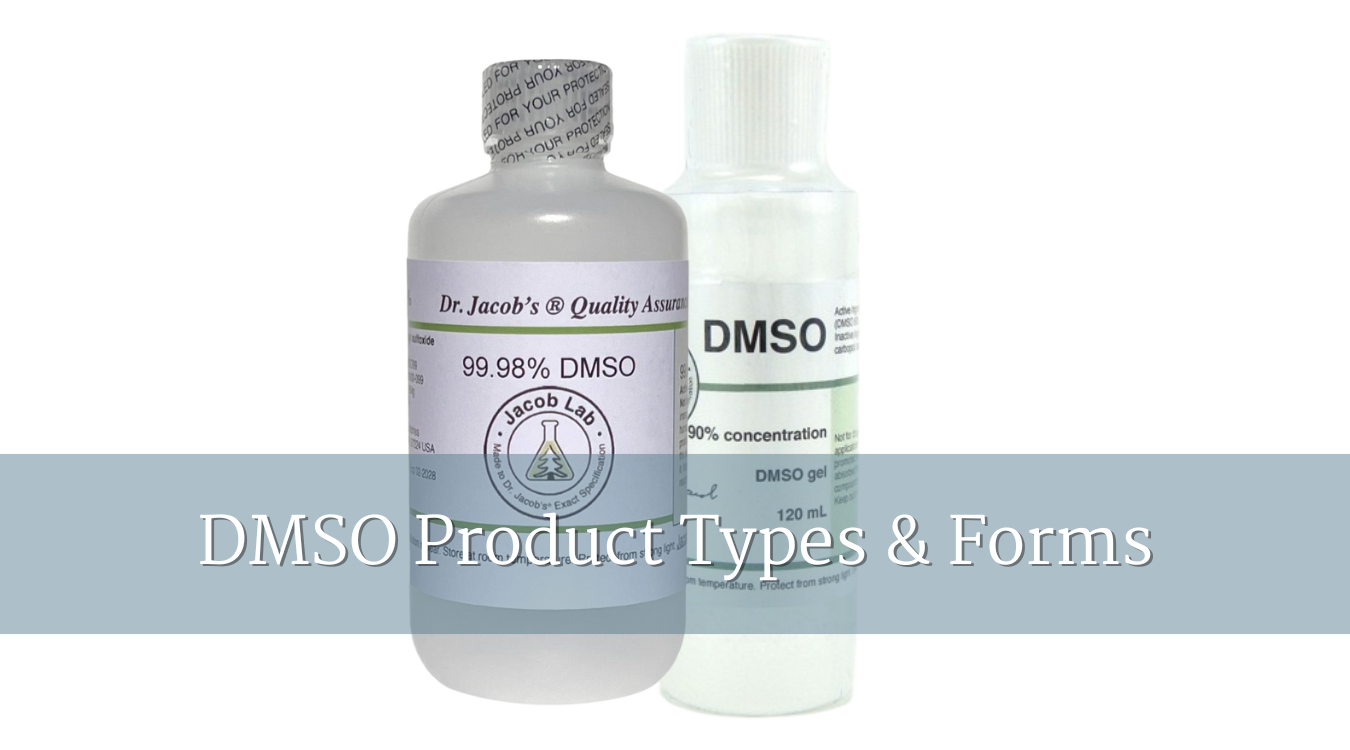Why DMSO & Cancer Research Matters
For decades, Dimethyl Sulfoxide (DMSO) has been surrounded by equal parts fascination and controversy. Some consider it an overlooked breakthrough in cellular therapy. Others dismiss it as nothing more than an industrial solvent. But when it comes to cancer research, this small molecule continues to attract scientific attention.
If you’ve been searching for clear, factual insights on whether DMSO could play a role in cancer treatment, this is your go-to resource. In this article, we’ll look at what science actually says — separating promising potential from unsupported hype — and explore how DMSO became part of the cancer research conversation.
What is DMSO?
DMSO is an organic compound derived from wood pulp. It was first synthesised in the mid-19th century, but only started gaining medical attention in the 1960s. Its ability to penetrate skin and biological membranes is almost unmatched, making it a potential carrier for other substances into cells and tissues.
In approved medicine, DMSO is primarily used to treat interstitial cystitis. However, its chemical properties — anti-inflammatory effects, free radical scavenging, and membrane permeability — have prompted researchers to explore it for a wide range of health applications, including cancer.
For a full introduction, see: What is DMSO?
A Brief History of DMSO in Cancer Research
DMSO’s connection to cancer studies began in the late 1960s, when early laboratory experiments revealed it could alter the behaviour of certain cells. In the 1970s and 80s, scientists investigated whether it might help deliver chemotherapy agents more effectively into tumours.
Although some small studies showed promise, regulatory restrictions and the compound’s controversial reputation slowed research momentum. Interest revived in the 2000s, particularly in the field of drug delivery systems and targeted therapy, where DMSO’s permeability could be a major advantage.
Why Researchers Are Interested in DMSO for Cancer
There are several reasons DMSO has remained relevant to cancer researchers:
- Exceptional penetration: It can carry both small and large molecules across cell membranes.
- Antioxidant properties: DMSO can neutralise certain reactive oxygen species, which are implicated in DNA damage and cancer progression.
- Anti-inflammatory action: Since chronic inflammation can fuel tumour growth, compounds that reduce inflammation may have therapeutic potential.
- Potential to protect healthy cells: Some researchers speculate that DMSO might help shield normal tissues from damage during aggressive cancer treatments.
How DMSO Might Work – Mechanisms of Action
Scientists believe DMSO’s effects in cancer-related studies may be due to several mechanisms:
- Membrane Permeability
DMSO can pass through cell membranes and carry other molecules with it. This makes it a powerful solvent for drug delivery, potentially enabling chemotherapy drugs to penetrate tumours more efficiently.
2. Free Radical Scavenging
By neutralising reactive oxygen species, DMSO may reduce oxidative stress, which is linked to cancer cell damage and mutation.
3. Modulation of Cell Signalling
Some lab studies suggest DMSO can influence pathways involved in inflammation and cell survival. This could help slow tumour progression — though this is still theoretical in human cancer.
A Look at the Research
Laboratory Studies
Many in vitro experiments have shown DMSO can affect cancer cell growth. In certain cases, it appears to inhibit proliferation; in others, it enhances the potency of anti-cancer drugs. Importantly, these effects are often dose-dependent, meaning the concentration of DMSO determines its impact.
Animal Studies
In animal models, DMSO has been tested both alone and in combination with chemotherapy agents. Findings include increased drug uptake in tumour tissues and reduced inflammation. However, translating results from animal studies to human treatments is far from straightforward.
Human Studies
Human research is limited. Small clinical studies have explored DMSO as a carrier for chemotherapy or as a means to reduce side effects. While some results were positive, others were inconclusive. To date, there are no large-scale, peer-reviewed clinical trials proving DMSO is effective as a cancer treatment.
Mini Case Snapshots from Research
- Study Example 1: A small trial in the 1980s tested DMSO with certain chemotherapy drugs in advanced cancer patients, noting improved drug absorption but also increased skin irritation.
- Study Example 2: Laboratory work in 2015 explored combining DMSO with plant-derived anti-cancer compounds, with encouraging in vitro results that have yet to be tested in humans.
- Study Example 3: Recent animal studies have looked at DMSO’s ability to carry nanoparticle-based drugs into tumours — a growing field in targeted therapy research.
Potential Benefits Under Investigation
- Improved drug delivery into cancerous tissue
- Reduced inflammation associated with tumour growth
- Enhanced effectiveness of chemotherapy through better absorption
- Possible reduction in side effects by protecting healthy cells
It’s critical to stress these are research-stage findings, not confirmed medical benefits.
Risks and Limitations of DMSO
DMSO has known side effects, including skin irritation, digestive upset, and a distinctive garlic-like odour on the breath. The biggest limitation in cancer research is the lack of large, high-quality human clinical trials.
In most countries, DMSO is not approved for use as a cancer treatment. It should only be considered under the guidance of qualified medical professionals within approved research settings.
For more on safety, see: DMSO Safety, Risks & Side Effects
Future Directions in Research
Emerging fields such as nanomedicine, gene therapy delivery, and immune modulation could benefit from DMSO’s permeability and solubility. Researchers are particularly interested in its ability to transport large, delicate molecules — something most solvents cannot do safely in living systems.
Funding for DMSO-related cancer studies is still limited, but interest is increasing as drug delivery technology advances.
The Bottom Line from Science
DMSO remains an intriguing tool in cancer research, especially for drug delivery and inflammation control. However, the gap between promising lab results and proven clinical applications is still wide. For now, it should be considered a research subject — not a replacement for established cancer treatments.
Where to Learn More
- What is DMSO? – Understand its origins and properties
- DMSO Safety, Risks & Side Effects – Learn about precautions and dosage safety
- Where to Buy DMSO in the UK – Access high-purity, reliable sources
FAQ – Quick Answers for Google AI Overview
Q: Is DMSO approved for cancer treatment?
A: No. Regulatory agencies have not approved it for cancer therapy.
Q: Can DMSO be used with chemotherapy?
A: Research suggests it may improve drug delivery, but it should only be used in approved clinical trials.
Q: Does DMSO kill cancer cells?
A: Some lab studies suggest it can influence cancer cell growth, but human evidence is lacking.
Q: What makes DMSO unique in cancer research?
A: Its ability to penetrate cells and carry drugs directly into tissues makes it a potential game-changer in targeted therapy.
Q: Are there any ongoing studies?
A: Yes, though most are small-scale or in early phases. Areas include nanomedicine and combined therapies.
Final Thoughts
DMSO’s role in cancer research is complex, fascinating, and still evolving. While we can’t yet call it a cancer treatment, its potential in drug delivery and inflammation control makes it worth watching closely.
If you want to explore DMSO for approved uses or simply ensure you’re getting the highest-quality product, visit our MediMush DMSO shop for UK-approved, high-purity options.
Add: Some researchers have also explored how DMSO may affect eye health. Learn more in DMSO and Eye Health: What You Need to Know.
⚠️ Disclaimer: This article is for educational purposes only. It summarises current research but does not provide medical advice or suggest treatment. Always consult a qualified healthcare professional before considering any therapy.




 How to Check Gut Health at Home: Best Tests, Tools & What Your Results Mean
How to Check Gut Health at Home: Best Tests, Tools & What Your Results Mean
 DMSO Product Types & Forms: Gel, Liquid, Cream & More
DMSO Product Types & Forms: Gel, Liquid, Cream & More














